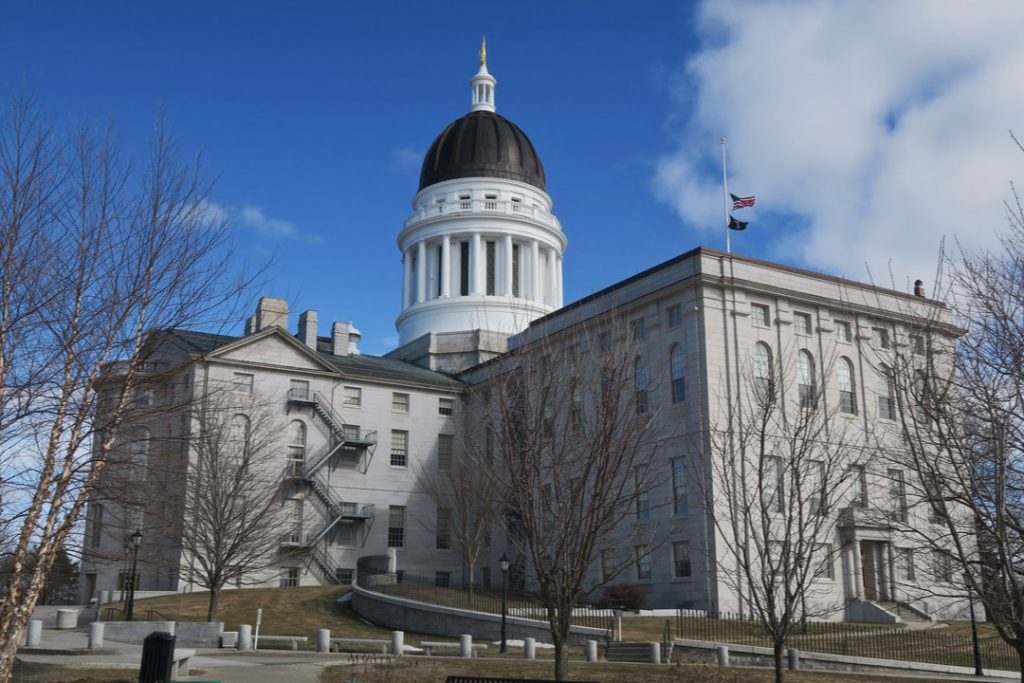
No U.S. state currently has an EPR law in place for packaging. | Yurii Prohonnyi/Shutterstock
Maine legislators are gearing up to introduce a bill that would mandate producers to fund the recycling of packaging they put on the market. The plan calls for different requirements based on whether a packaging type is “readily recyclable.”
In May of last year, Maine Gov. Janet Mills signed into law legislation pledging that the state would develop an extended producer responsibility (EPR) system for packaging materials. The bill did not lay out a specific system, but included criteria the EPR program would need to meet.
This month, the Maine Department of Environmental Protection presented a draft of the next stage of legislation to the Maine Committee on Environment and Natural Resources. State Rep. Nicole Grohoski, a member of the committee, shared the draft with Resource Recycling. She also spoke about the proposal at a recent meeting with local constituents.
“This legislation is urgently needed to help Maine cities and towns that are struggling with the costs of managing an ever-increasing volume of non-recyclable packaging waste,” Grohoski said in a statement. She said packaging EPR has support among constituents and municipalities because it would save taxpayer dollars, increase waste diversion and address other systemic problems with the current recycling system.
The bill is still being finalized, and it’s uncertain when it will be introduced. Grohoski told Resource Recycling the committee has asked for the bill to be a priority. Committee lawmakers are scheduled to hear a briefing on packaging stewardship on Jan. 22.
No U.S. state currently has an EPR law in place for packaging, though the concept has been adopted in various forms in Canada. With recycling systems under greater financial pressure due to massive shifts in overseas markets, discussions around EPR in the U.S. have grown louder over the past year.
Specifics of Maine proposal
Under the draft proposal in Maine, large packaging producers would pay into a “packaging stewardship fund,” with the payments depending in part on the weight and type of packaging they distribute into Maine. Producers would report to a new stewardship organization to coordinate these payments.
Producers who do not participate in the EPR program would be barred from selling their packaging in Maine.
In the text of the draft legislation, packaging is defined as a material used for containing, protecting and handling products during delivery and presentation. The proposal specifies it is not material used for long-term protection or storage of a product.
Further, packaging defined as “readily recyclable” would be treated differently than other items. Under the draft language, “readily recyclable” means the packaging can be sorted by MRFs operating in Maine and that there has been a consistent market for the material for the previous two calendar years.
The draft suggests an equation for calculating producer payments for “readily recyclable” materials. For a given type of packaging, a producer’s market share (by weight) for the previous year within the state would be calculated. And that number would be multiplied by the average cost across Maine to process that material type.
Those payments would be further adjusted based on the producer’s use of recycled content, toxicity of materials, and “other incentives in line with industry standards as provided by the stewardship program plan,” according to the draft.
Packaging that does not meet the “readily recyclable” definition would be assessed differently; the draft suggests a producer would pay twice the previous year’s processing cost, or twice the previous year’s disposal cost, whichever is greater.
Under the draft proposal, Maine municipalities would have the option to join the EPR program, but doing so would not be mandatory. To participate, they would need to collect and report certain data related to processing and disposal costs.
“Municipalities will continue to be responsible for their recycling and solid waste management programs,” the draft states. “Those that choose to participate in the packaging stewardship program and provide the information required by the stewardship organization, will receive payment from that organization to help offset their costs of recycling and disposing of packaging.”
Payments to municipalities would be calculated using an equation that considers median per-ton processing costs for various material types, the municipality’s population size, and more.
Grohoski said there will likely be some changes to get the bill into the proper format for Maine statutes, but she anticipates provisions such as the definition of readily recyclable materials, exceptions for small-volume packaging producers, and the function of the stewardship organization would carry through when the bill is introduced.
A version of this story appeared in Resource Recycling on January 21.
More stories about EPR/stewardship
- Circular Action Alliance revises Colorado EPR plan
- PET Recycling Coalition doubles down on thermoforms
- Proposed Canadian EPR changes could inform US plans